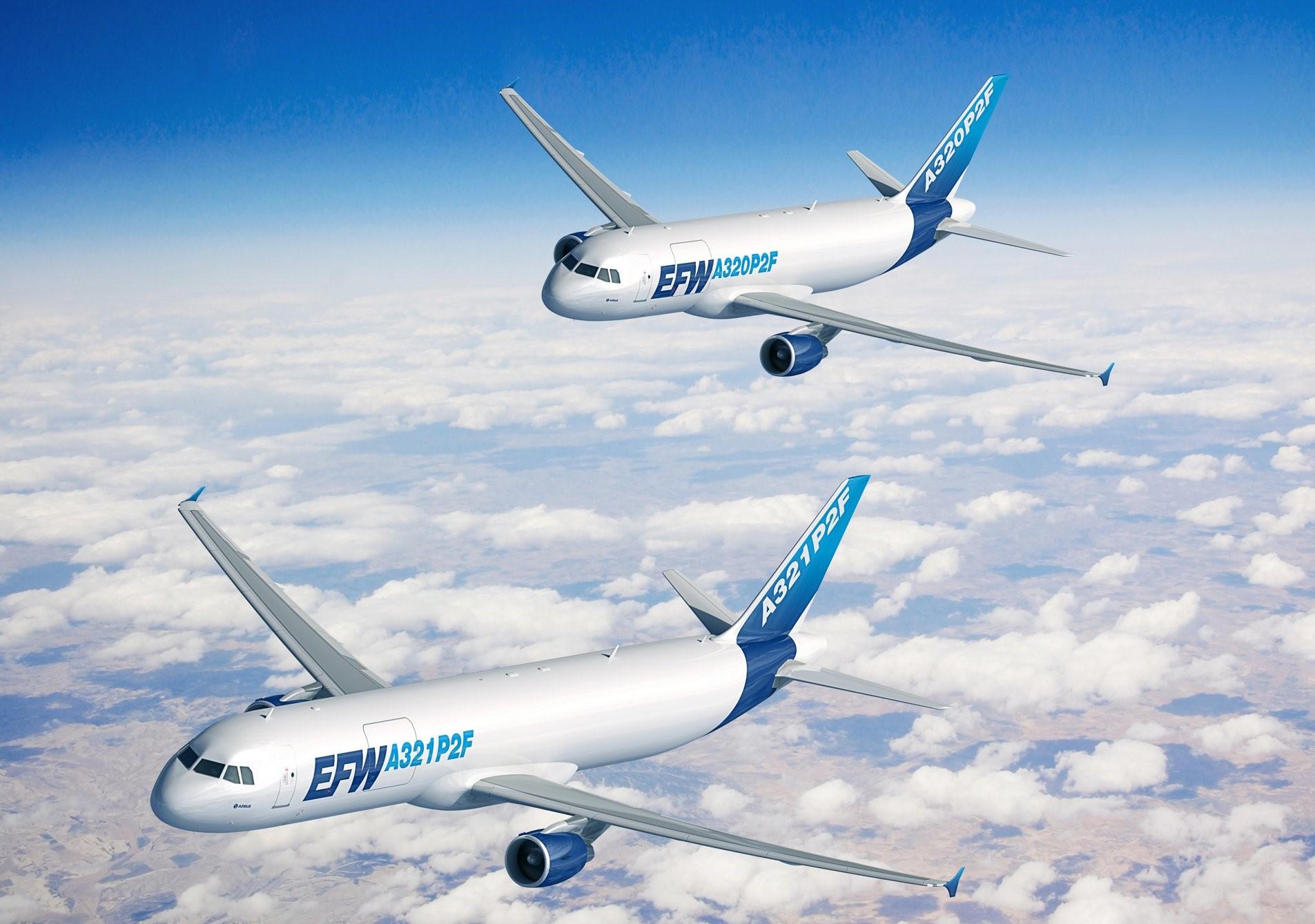
An Airbus A321 passenger-to-freighter (P2F) conversion—developed by joint-venture partners ST Engineering, Airbus and Dresden-based freighter conversion specialist Elbe Flugzeugwerke (EFW)—has secured EASA supplemental type certification (STC).
The A321P2F program launched in 2015, with ST Engineering handling engineering development and Airbus providing certification support and original equipment manufacturer (OEM) data. As the STC-holder, EFW is heading up the program and will handle adaption engineering for serial production, sales, marketing and customer support.
On Feb. 25, the partners announced that the A321P2F had secured an EASA STC, in keeping with time lines given by ST Engineering at the Singapore Airshow earlier this month.
“ST Engineering and EFW are the only provider in the world offering Airbus freighter conversions through their own STC, developed using original OEM engineering data,” the partners said.
The A321P2F can hold up to 14 containers on the main deck and up to 10 on the lower deck, with a payload-range of up to 27.9 metric tonnes (30.8 tons) over 2,300 nm.
The first prototype, which is slated for delivery to Luxembourg-based launch customer Vallair in July, made its maiden test flight on Jan. 22. from ST Engineering’s Seletar, Singapore facility.
The conversion of D-ANJA (msn 835), which started around November 2018, involved the installation of portside cargo doors, as well as moving the front portside passenger door forward. The rear passenger doors were also removed and reinforcing strips were added to the fuselage. The cargo doors were manufactured in Europe and shipped to Singapore.
Mature-aircraft trader and lessor Vallair has a contract with EFW for 10 A321-200s to A321P2F conversions, the first of which is expected to be leased to Qantas from October 2020, as part of the Australian carrier’s partnership with Australia Post.
“With the EASA approval, we are confident of seeing more operators show interest,” Airbus asset management VP and EFW shareholders’ committee member Andreas Hermann said.
EFW CEO Andreas Sperl described the A321P2F as an “ideal replacement” for aging Boeing 757 freight conversions.
Airbus originally attempted an A320/A321 conversion in partnership with EFW and Russian aerospace firms United Aircraft and Irkut in 2011. At the 2015 relaunch, Airbus COO Tom Williams said the original conversion was overdesigned and costs were too high.
